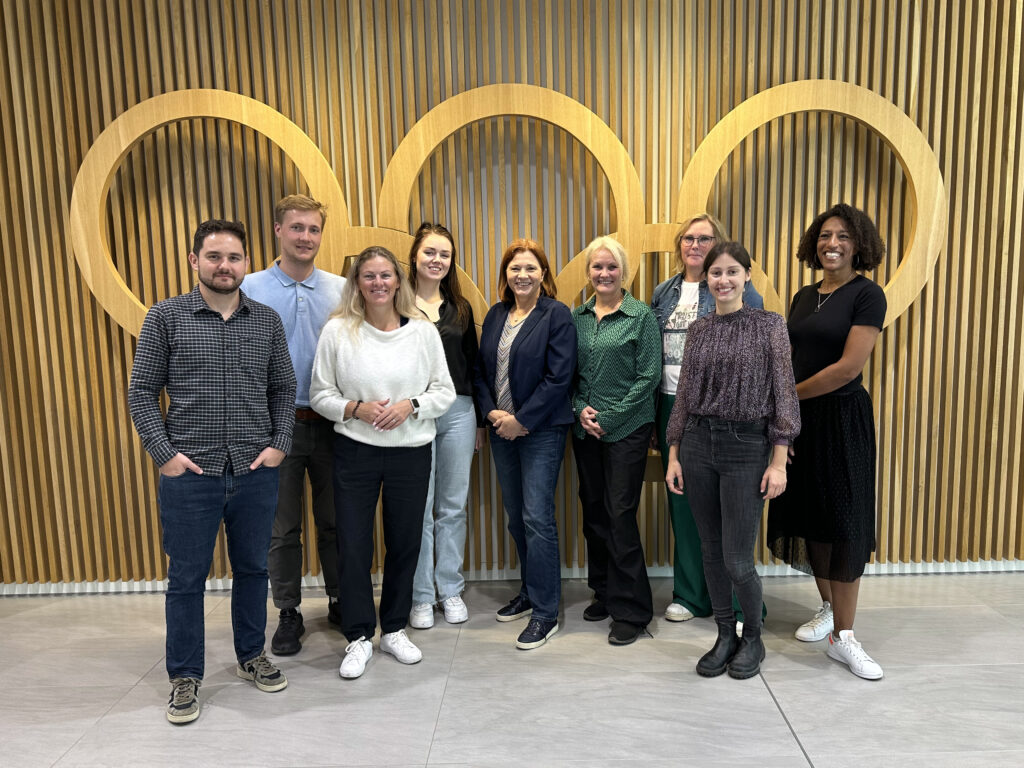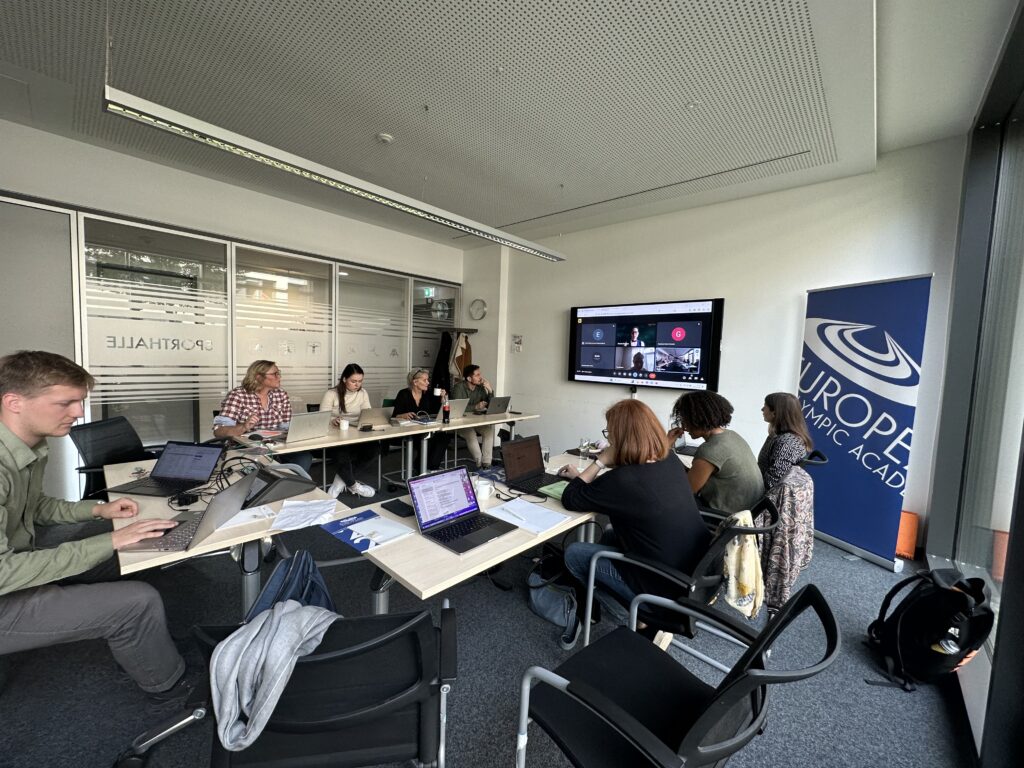Frankfurt – At a meeting on 10-11 October 2023, the experts of the EU project BESST addressed the underlying mechanisms of abuse and harassment in sport, and ways in which sport organisations in Europe can take preventive action. BESST suggests that the root of harmful behaviour lies in the misuse of prevailing relationships of power. Therefore, in addition to the safeguarding measures at the micro level, there is a need for a cultural change in the sport systems.
Many studies in recent years have shown that abuse and harassment are widespread in sport. In a Dutch study from 2022, 72% of the participants reported having experienced at least one type of transgressive behaviour (physical, psychological, sexual) in the field of organised sport (Schipper-van Veldhoven, 2022). These numbers are alarming and show the need for action at all levels of the sports community to ensure safe environments.
At the project meeting in Frankfurt, the universal understanding of harassment and abuse was thoroughly discussed. The International Olympic Committee (IOC) defines safe sport as “an athletic environment that is respectful, equitable and free from all forms of non-accidental violence to athletes” (IOC Consensus Statement).
Researchers Nicolette Schipper-van Veldhoven and Marleen Haandrikman from Windesheim University of Applied Sciences emphasised in Frankfurt, “safeguarding measures for athletes are the essential first step, but to really change something, all actors in the sports community must become aware of their relationships of power. To achieve this, it is very important to broaden the perspective towards harassment and abuse and start utilising instead of misusing the relationships of power. We need a cultural change!”
Therefore, project BESST intends to go a step further than previous definitions and look at harassment and abuse from a different perspective, namely from the perspective of power. BESST proposes the use of the terminology “transgressive behaviour” (TGB) which is defined as “any form of misuse of a relationship of power violating someone’s access to safe sports” (the working definition of the BESST project).
Andreja McQuarrie concluded, “We are very grateful for the recognition and support we have received from the European sports organisations for our project so far. We have gained valuable insights into safeguarding policies and procedures in National Olympic Committees and National Sports Federations through our Europe-wide survey and follow-up interviews. We would like to sincerely thank all organisations for their participation.”
Based on the findings, BESST will prepare awareness and education toolkits in subsequent steps that can assist European sport organisations at all levels to achieve an attitude change in relation to safe sport.
As a next step, project BESST will participate in a roundtable at this year’s EOA Congress in Vilnius from 8 to 11 November 2023.
For more details about BESST, please refer to the project website (besst-safesport.eu) where news on the project’s progress, safe sports in general and the forthcoming awareness toolkits and legal framework can be accessed. If you would like to be informed regularly about the BESST project, please sign up for the BESST newsletter.
The aim of the BESST initiative is to develop a modern unifying definition, a legal framework and an awareness and education toolkit for National Olympic Committees, sport federations and clubs and guidelines for European sports event organisers in order to provide the organisations with the necessary support to make sport safer for everyone involved.
The BESST project team consists of the following organisations: European Olympic Academies (EOA), IGNITX, Windesheim University of Applied Sciences, Rudi Hiti Academy, UEFA Foundation for Children, NOC of Netherlands (NOC*NSF), and NOC of Slovenia.



